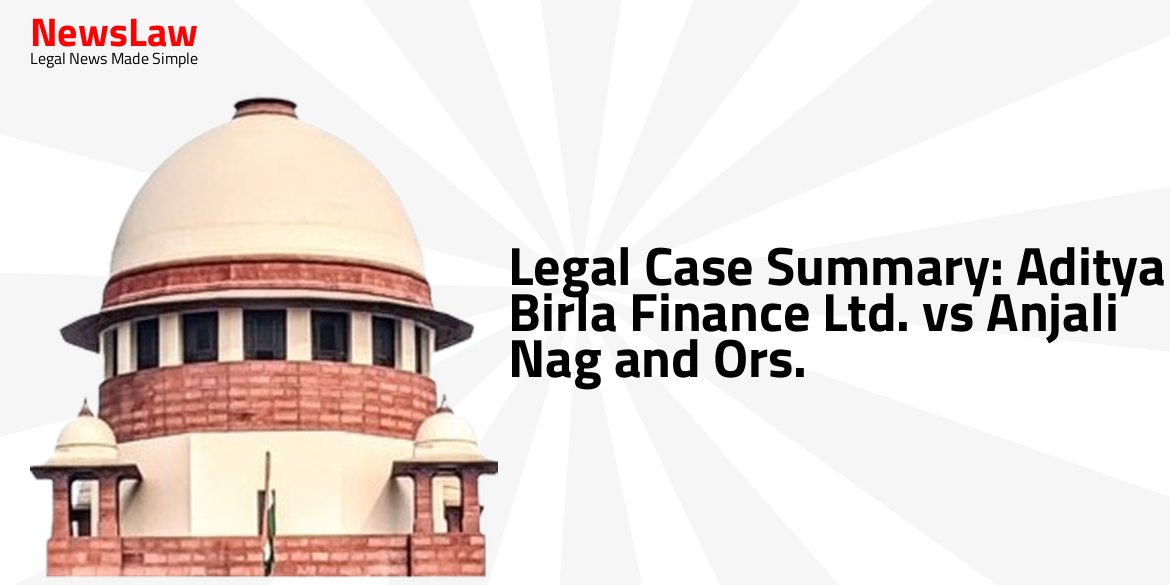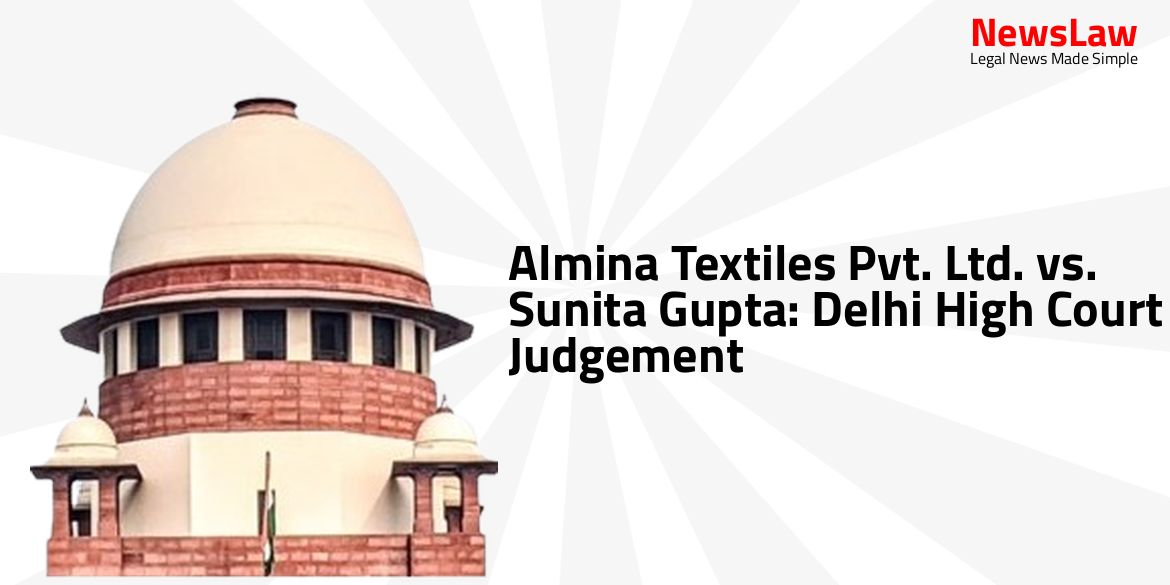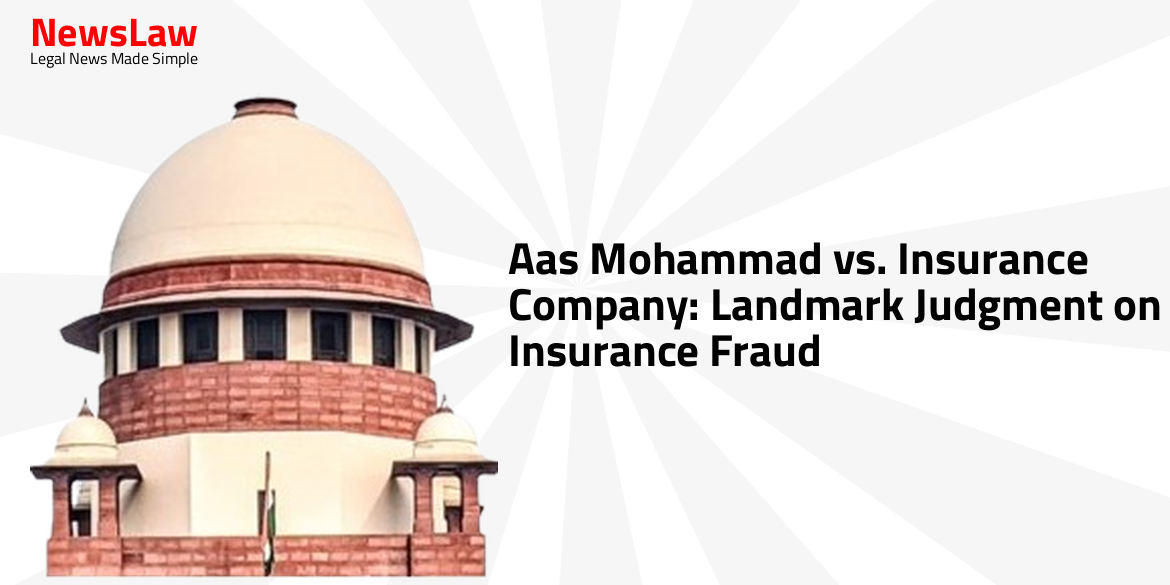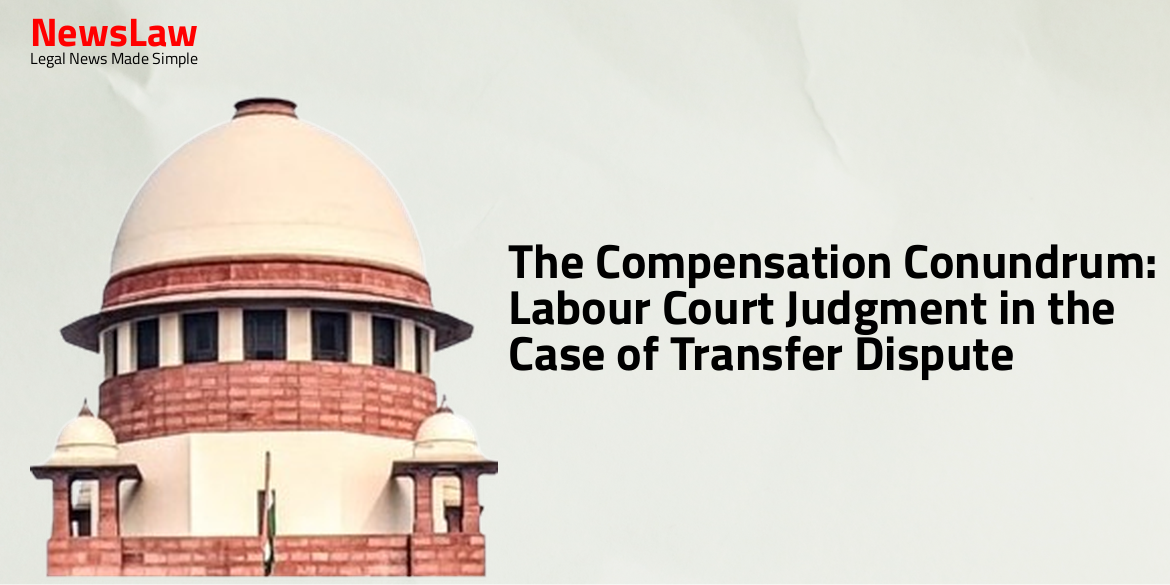In a significant ruling by the Delhi High Court, the case of Aditya Birla Finance Ltd. vs Anjali Nag and Ors. sheds light on arbitration rights and non-arbitrable claims. The judgment provides clarity on legal proceedings in cases involving financial institutions and the applicability of the RDB Act. Let’s delve into the details of this case and its implications on arbitration disputes.
Facts
- Petitioner granted a sanction of a loan of 423.12 lakhs on 17.05.2019.
Arguments
- The Petitioner is not considered a financial institution under the RDB Act and is ineligible to avail of the resolution mechanisms specified in the Act.
- Claims covered by the RDB Act are deemed non-arbitrable, as per the Supreme Court’s decision in Vidya Drolia case.
- The issue of non-arbitrability may not arise if the party can prove the secured creditor’s actions are fraudulent or the claim is wholly absurd.
- A judgment in Fermina Developers Pvt. Ltd. v. Indiabulls Housing Finance Ltd. & Ors. states that actions under SARFAESI must be examined under Sections 13, 17, and 18 of SARFAESI, unless the claim pertains to an independent right not covered by SARFAESI.
- The Petitioner relies on the judgments in M.D. Frozen Foods Exports Pvt. Ltd. v. Hero Fincorp Ltd. and Aditya Birla Finance Ltd. v. Shri Jagannath Memorial Educational Trust & Ors. to support the maintainability of the present petition.
- Arbitrability is influenced by national policy, and a statute can prohibit arbitration on grounds of public policy, as per Vidya Drolia case.
- Mr. Vashisht, counsel for the petitioner, has dropped respondent No. 6 from the arbitration proceedings with liberty to initiate legal proceedings.
- The contention of the Respondent, regarding the applicability of the RDB Act to the Petitioner, is considered flawed.
- The same stance has been taken in the case of Aditya Birla Finance Ltd. vs Anjali Nag and Ors. in ARB.P. 771/2023.
Analysis
- Judgments of various High Courts and the Supreme Court have established that issues covered under the Recovery of Debts and Bankruptcy Act, 1993 are outside the purview of arbitration proceedings.
- The Andhra Pradesh High Court’s decision that disputes related to SARFAESI proceedings are non-arbitrable is based on the presumption that matters falling under the RDB Act are not arbitrable.
- The Supreme Court has ruled that SARFAESI proceedings and arbitration proceedings can coexist, as they serve different purposes.
- The Supreme Court’s decision in M.D. Frozen Foods Exports supports the view that parallel SARFAESI and arbitration proceedings do not nullify the arbitral process.
- The judgment in Fermina Developers relies on Vidya Drolia to assert that claims covered under the DRT Act are non-arbitrable due to the specific rights and modes of recovery outlined in the Act.
- The legislation has overridden contractual rights to arbitration in cases covered by the DRT Act.
- The decision in Deccan Chronicles Holdings Limited v. Union of India suggests that the position taken by the Orissa High Court in Subash Chandra Panda v. State of Orissa was incorrect.
- The petition is properly signed and verified.
- All loan agreements and the Deed of Guarantee originate from a loan document dated 29.10.2019.
- The loan agreements aim to secure the loans mentioned in the sanction letters.
- The petitioner cannot utilize the resolution mechanisms under the RDB Act to approach the Debt Recovery Tribunal due to the interconnected nature of the loan agreements.
- Initiation of SARFAESI proceedings by the petitioner was to secure the equitable mortgage of the immovable property.
- The disputes in this case are considered arbitrable despite previous involvement with the Civil Court.
- Filing the petition for arbitration is deemed maintainable even after SARFAESI proceedings have been initiated.
- Mr. Jahirul Laskar’s competence to sign the petition is confirmed by a board resolution dated 23.06.2022.
- The petitioner is not classified as a financial institution or banking company under relevant sections of the RDB Act.
- A common arbitration proceeding is maintainable for the alleged non-payment of the loan secured from the loan sanction letter.
- The loan sanction letter is a binding legal document.
- Both parties are bound by the terms and conditions stated in the loan sanction letter.
Decision
- Disputes between the petitioner and respondent Nos. 1 to 5 referred to arbitration.
- Ms. Nandita Rao appointed as Sole Arbitrator.
- Arbitration to be held at the Delhi International Arbitration Centre.
- Remuneration of the Arbitrator as per the Fourth Schedule of the Arbitration & Conciliation Act, 1996.
- Arbitrator to furnish a declaration as per Section 12 of the Act.
- All rights and contentions of the parties, including arbitrability and preliminary objections, to be adjudicated by the Arbitrator.
- Parties to approach the Arbitrator within two weeks.
- Petitioner can initiate legal proceedings against respondent No. 6.
Case Title: ADITYA BIRLA FINANCE LIMITED Vs. M/S ANOOP OSWAL HOSIERY AND ORS (2024:DHC:4106)
Case Number: ARB.P.-203/2023



